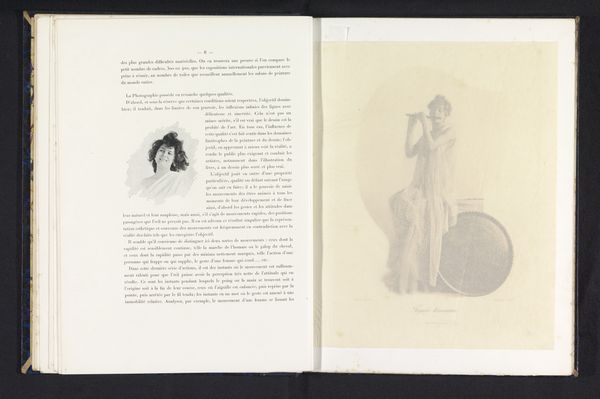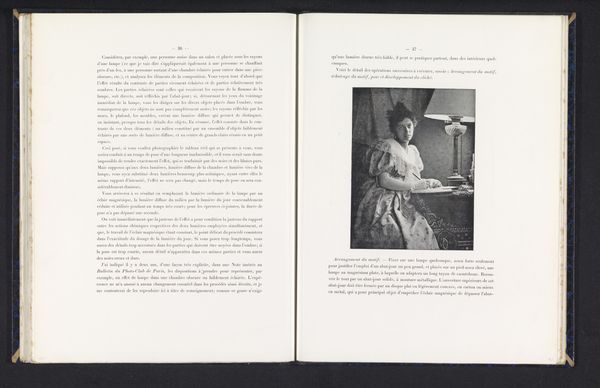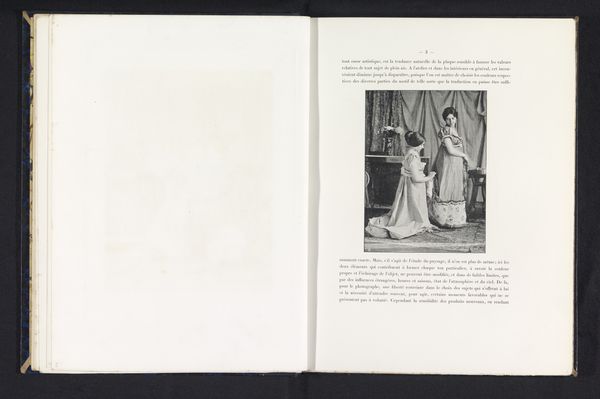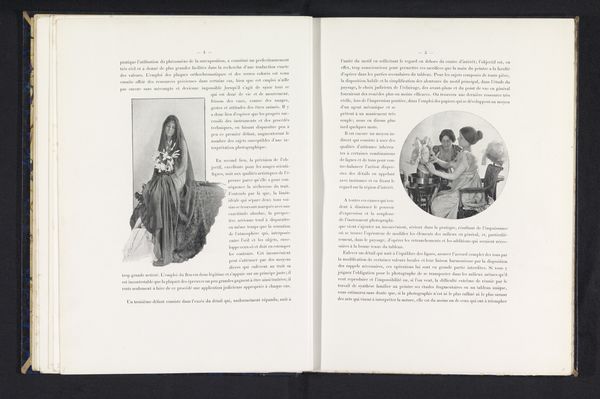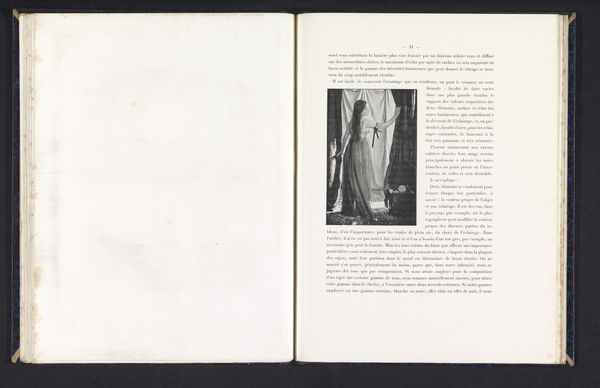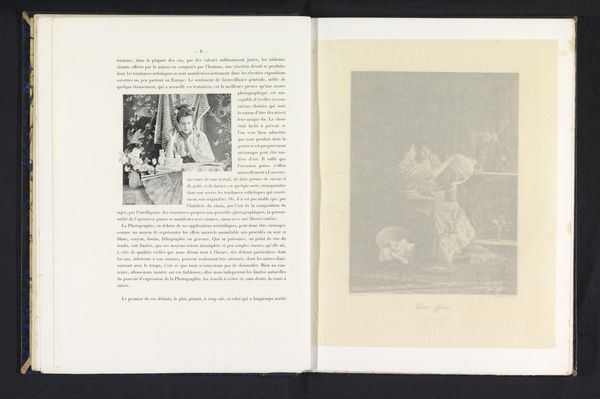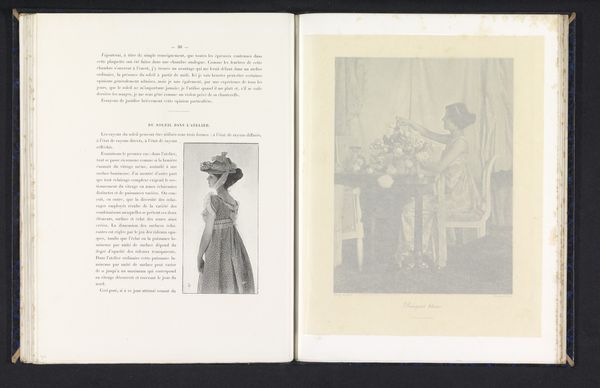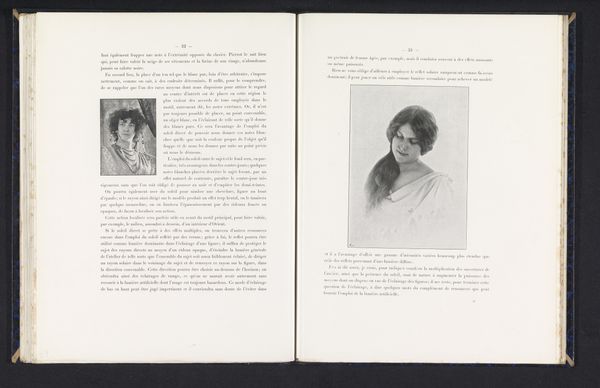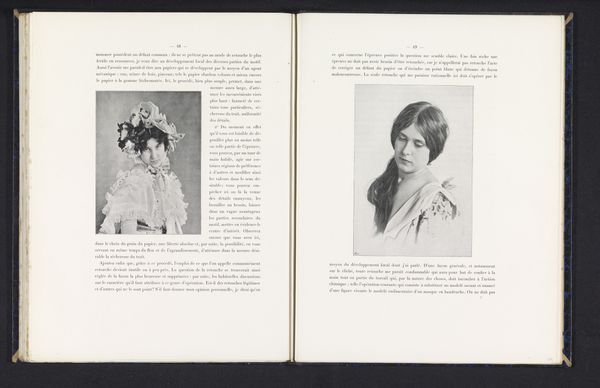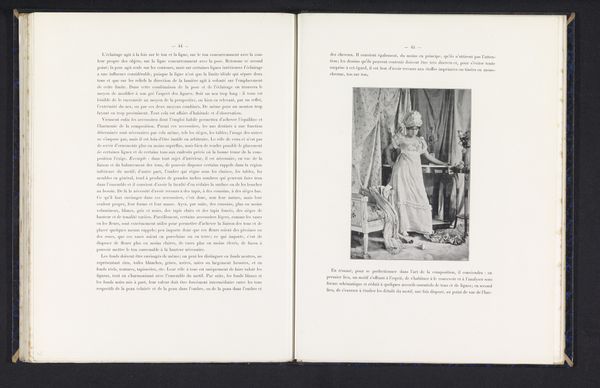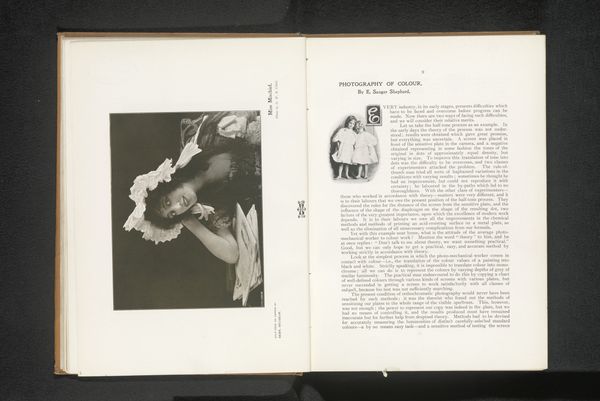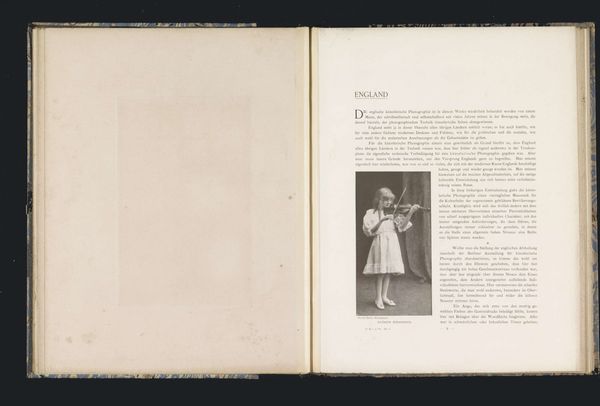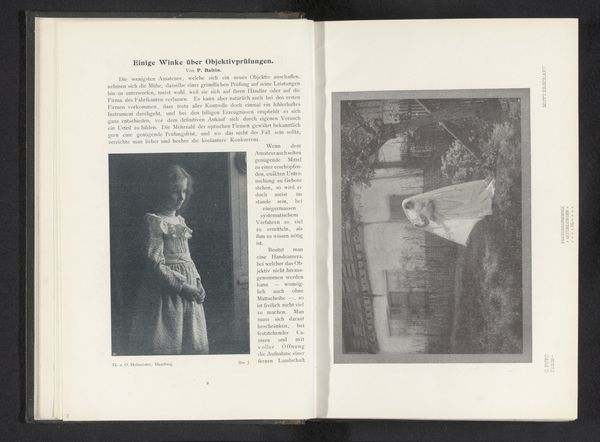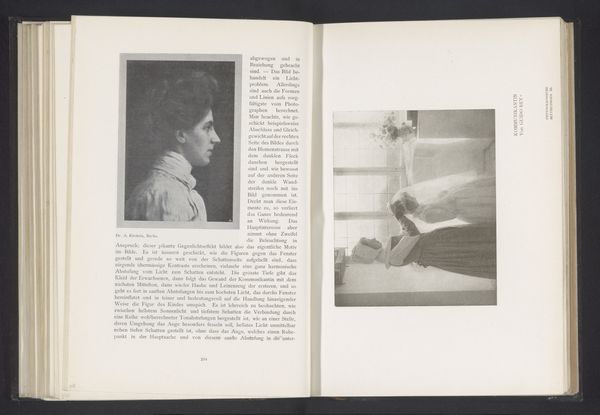
Dimensions: height 38 mm, width 30 mm
Copyright: Rijks Museum: Open Domain
This photogravure, dating to around 1900, is by the French photographer Constant Puyo. It’s a relatively early example of the technique, in which a photographic image is transferred to a printing plate, then etched and inked. What's fascinating about photogravure is the tension between mechanical reproduction and human touch. The image originates from a photograph, capturing a specific moment and detail with mechanical precision. Yet, the process of transferring the image to a plate and printing it requires a skilled hand, as the etcher must use a fine degree of judgement. Consider the final print – its tonal range, its subtle gradations, and the way the ink sits on the paper. These qualities are not merely byproducts of a chemical reaction. They result from decisions made by the printer, who is acting as a craftsperson. It bridges the gap between photography and traditional printmaking, hinting at a broader convergence of art, technology, and labor during the industrial age. The print's final beauty lies in this dialogue between technology, handcraft, and a certain amount of human skill.
Comments
No comments
Be the first to comment and join the conversation on the ultimate creative platform.
